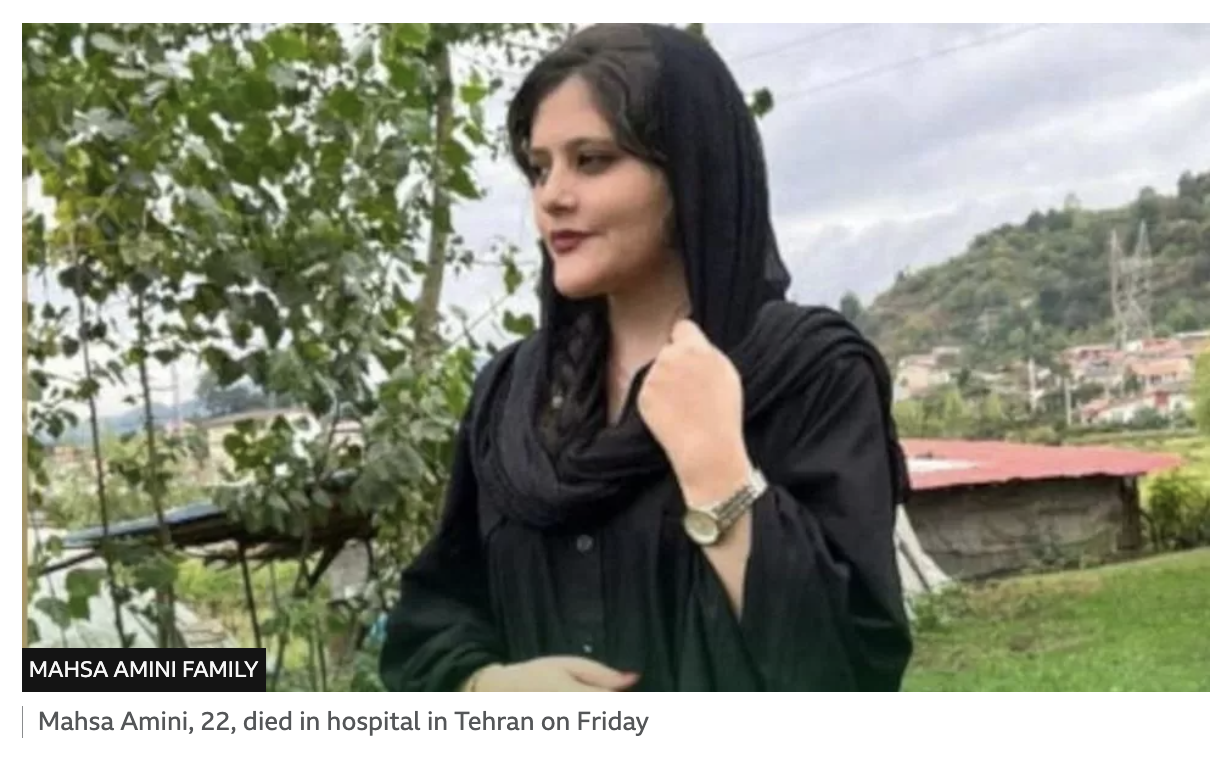Our Hair As The Flag
This article was originally published on Netzwerk Medien Vielfalt by Mahtab Mahboub.
The unified voice of protests from all corners of Iran these days shows a change in the context of Iranian society. A society that, according to the rulers, is dominated by a traditional culture that demands a special covering from women. Yet, traditional women’s coverings are distinctly different from the uniform compulsion of veils (black Chador) and Maghnaeh (a kind of Islamic covering for women that keeps the head and chest covered).
The diversity of covers was marginalised and demolished by murder, torture and humiliation and in a period of more than three years from the winter of 1980 to 1984, right after the 1979 revolution, along with elimination of the diversity of any other type of community, and believing that these people did not identify with those of the rulers. However, the daily resistance of women who did not give up their right to live freely continued, from the struggles with Revolutionary Guard Corps and paramilitia that attacked parties in the private spaces of homes, to self-immolation as protest, to the creation of mobile applications that now informs other women about the location of Hijab police on the streets and other public spaces.
In these days protests triggered by the murder of a 22 year old Kurdish woman, Zhina (Mahsa) Amini at the hand of Hijab police in Tehran, names and symbols of this long history of feminine resistance is summoned in the joyful dances and burning of women's scarves, from Dr. Homa Darabi who set herself on fire in 1994 to protest the violence and dehumanisation of women , to the “blue girl” who had just tried to enter the stadium to watch a football match but had to choose death, not only to escape the prison sentence, but also the family police, her father.
Now the legacy left behind by Rojava fighters, with the slogan of “Jen, Jian, Azadi” (woman, life, freedom) are rejoined with the voice of that Ahwazi Arab woman who shouted at the security forces “our demonstrations are peaceful, why are you shooting at us?” during a protest amid severe droughts. The voices of the margins have moved to the centre of this feminist struggle.
While previous attempts at mobilizing to change the law through gathering signatures and popular support and sending more female MPs to the Parliament -both organised mainly by activists in the capital- have not gained much success, this wave of protest has obtained the solidarity of many people who are desperate for change.
Navigating the public space with a non/male body could become a potential death hazard for many, especially those having to use public transportation because they cannot afford a private vehicle, although that does not guarantee a woman’s safety. The hijab police never had a very clear code of conduct, and this ambivalence is how they keep women in constant fear and the cities unsafe for them. Parallel to the increased pressure from inflation, unemployment, climate crisis, the unending reports of embezzlement in unprecedented amounts, the state is limiting women’s right to their reproductive rights by outlawing sterilisation and free distribution of contraceptives in the public health care system.
The same segregation policies that required female personnel for many jobs including doctors, nurses and teachers, has created two generations of women who are educated and tired of being subjected to an inferior status.
The younger generations of women* are more global citizens, courageous and demanding of their right to have an un-oppressed life and a prospect for their future. Alongside them are fighting (mostly young) men*, who now know that the ruling system of theocracy and their neoliberal policies are not benefiting them.
In the face of unemployment, ethnic and religious discriminations, obligatory military service, and impoverishment of vast populations coinciding with climate crisis, patience has run thin for many Iranian civilians. They are now representing a new kind of masculinity that supports women's freedom and amplifies their voices, both on the street, and in terms of discourses; a masculinity that does not take up all the space to promote itself but holds the space for voices with less access to power, that is women and LGBTQI+ rights.
“The new world struggles to be born,” as Antonio Gramsci said and regardless of the “victory“ or “failure“ of this movement – in terms of taking the political power or changing the regime, this has created politicised citizens, and will leave its mark on the social space and in our memory forever.
This article was originally published on the website of Netzwerk Medienvielfalt a transcultural network of media makers connecting various media projects of refugees and migrants all over Germany. Their content amplifies the voices of people who experience discrimination and have to live with the disadvantages of not being seen as part of "German society".
Mahtab Mahboub is a podcaster and one of the coordinators of the network.


